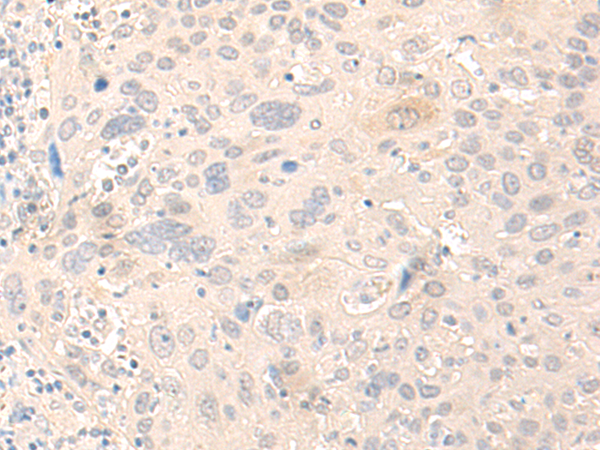
| WB | 咨询技术 | Human,Mouse,Rat |
| IF | 咨询技术 | Human,Mouse,Rat |
| IHC | 1/30-1/150 | Human,Mouse,Rat |
| ICC | 技术咨询 | Human,Mouse,Rat |
| FCM | 咨询技术 | Human,Mouse,Rat |
| Elisa | 1/5000-1/10000 | Human,Mouse,Rat |
| Aliases | NOD5; NOD9; NOD26; DLNB26; CLR11.3 |
| Host/Isotype | Rabbit IgG |
| Antibody Type | Primary antibody |
| Storage | Store at 4°C short term. Aliquot and store at -20°C long term. Avoid freeze/thaw cycles. |
| Species Reactivity | Human |
| Immunogen | Fusion protein of human NLRX1 |
| Formulation | Purified antibody in PBS with 0.05% sodium azide and 50% glycerol. |
+ +
以下是3篇关于NLRX1抗体的参考文献概览:
1. **"NLRX1 is a regulator of mitochondrial antiviral immunity"**
*作者:Moore CB et al. (2008)*
**摘要**:首次开发了兔源多克隆NLRX1抗体,验证其在Western blot和免疫荧光中的应用,证明NLRX1定位在线粒体并负调控抗病毒信号通路(如RIG-I/MAVS通路)。
2. **"The NOD-like receptor NLRX1 interacts with TRAF6 and modulates NF-κB signaling"**
*作者:Arnoult D et al. (2009)*
**摘要**:利用NLRX1特异性抗体进行免疫共沉淀实验,发现NLRX1通过结合TRAF6抑制NF-κB激活,揭示了其在炎症调控中的作用。
3. **"NLRX1 negatively regulates TLR-induced NF-κB signaling by targeting TRAF6"**
*作者:Lei Y et al. (2012)*
**摘要**:通过Western blot和免疫组化(使用NLRX1抗体)证实NLRX1在巨噬细胞中抑制TLR触发的NF-κB通路,提示其作为炎症反应的负调控因子。
4. **"NLRX1 enhances colorectal cancer cell survival by inhibiting NLRP3 inflammasome activation"**
*作者:Xia X et al. (2016)*
**摘要**:采用NLRX1抗体分析结直肠癌组织中的蛋白表达,发现NLRX1通过抑制NLRP3炎症小体促进肿瘤细胞存活,提示其作为癌症治疗潜在靶点。
---
提示:以上文献可通过PubMed或Google Scholar输入标题/作者查询原文。
The NLRX1 antibody is a crucial tool for studying the role of NLRX1. a unique member of the NOD-like receptor (NLR) family. Unlike most NLRs that regulate inflammasome activation or NF-κB signaling, NLRX1 is primarily localized to mitochondria and modulates antiviral immune responses by interacting with mitochondrial antiviral-signaling protein (MAVS). It acts as a negative regulator of type I interferon production, influencing pathways linked to RNA virus detection. NLRX1 also intersects with metabolic processes, autophagy, and reactive oxygen species (ROS) regulation, implicating it in diseases such as cancer, autoimmune disorders, and infections.
Antibodies targeting NLRX1 enable researchers to detect its expression, localization, and interactions via techniques like Western blotting, immunofluorescence, and immunoprecipitation. These tools have revealed tissue-specific expression patterns and dynamic regulation under stress or pathogenic conditions. However, challenges persist due to potential cross-reactivity with other NLR proteins or splice variants, emphasizing the need for antibody validation using knockout controls. Recent studies using NLRX1 antibodies have uncovered its dual roles in promoting tumor progression or suppressing inflammation, depending on cellular context. As NLRX1 gains attention as a therapeutic target, its antibodies remain vital for elucidating its complex functions in immunity, metabolism, and disease pathogenesis.
×